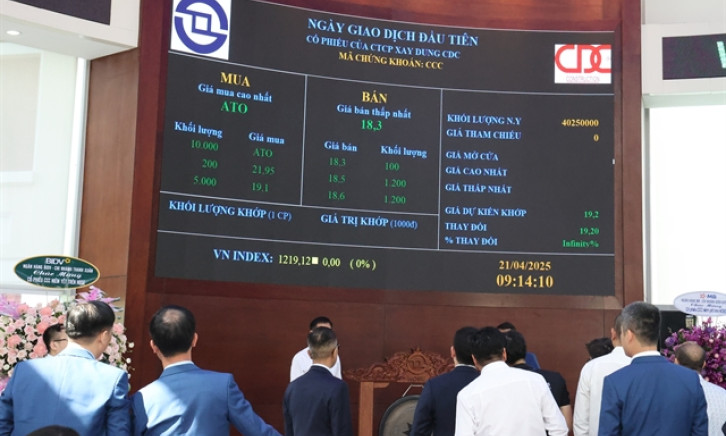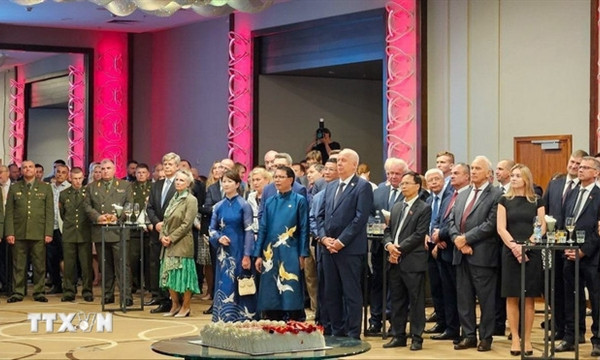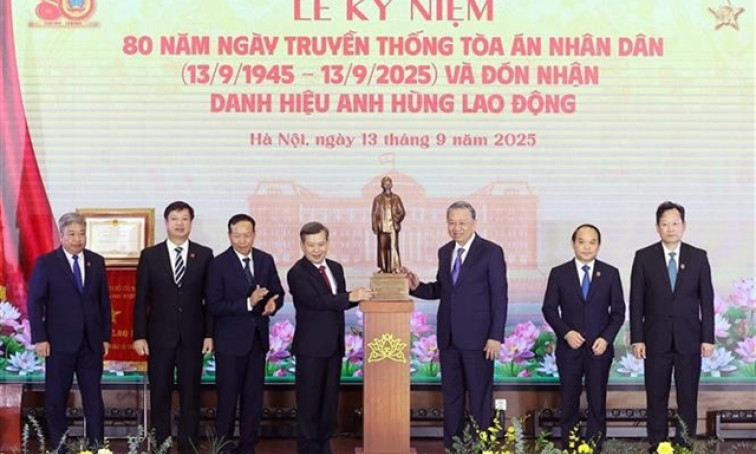Villagers create mini-museum from own donations
Locals in a suburban village in Hà Nội have set up a museum to maintain the memorabilia of their village’s history.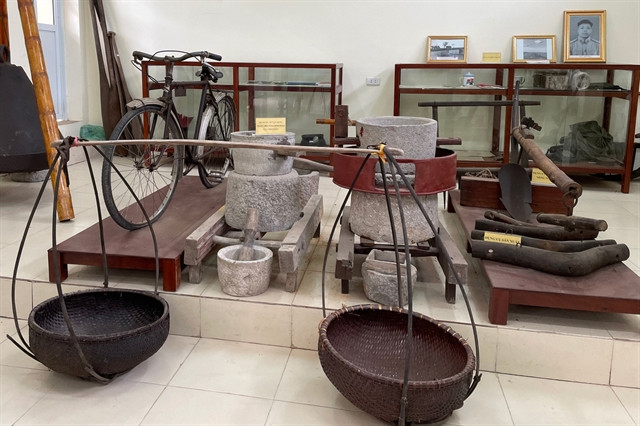
Hundreds of antique objects have been donated by local residents in Yên Mỹ Commune in Thanh Trì District to transform the commune’s Memorial House into a mini museum.
Dubbed “The Place where Time Stands Still”, the 150-square-metre venue now displays objects and documents showcasing the village’s development over the past centuries.
Visitors can find objects related to life in the village’s past such as hundred-year-old chinaware, wooden meal trays, clay pots and brass sinks.
Farming tools and household items that are hard to find today, such as stone grinders, bamboo bailing buckets and bamboo cupboards are also on show.
According to the Chairman of the Yên Mỹ Commune Trần Quang Khánh, all the memorabilia displayed at the museum demonstrate not only the daily activities of Northern villages, but also different periods of history.
“All these unique keepsakes are a meaningful bridge linking the past and present,” he said.
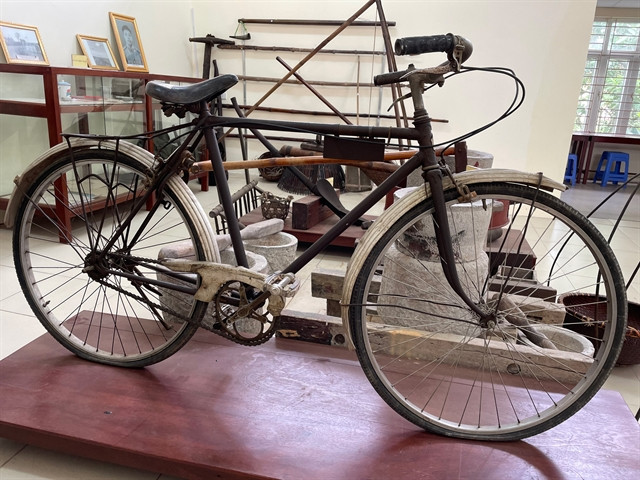
To prepare for the museum’s establishment two years ago, local authorities announced the purpose of the collection on the village’s public speaker system, and encouraged villagers to donate.
“Luckily, our call received an enthusiastic response from local residents, who didn’t hesitate to donate many unique items,” Khánh said.
Special objects in the museum include a big iron alarm bell used during the American War to warn villagers about the arrival of enemy airplanes.
Also on display is a bicycle which the State granted to the former chairman of the Yên Mỹ Commune People’s Committee Nguyễn Văn Năm whose working term was from 1957 to 1960. The bicycle was earlier used by commissariats to transport rice to the battlefield.
Nguyễn Văn Trà, son of Năm, said many collectors had offered his father money for the bike at a very high price.
“A dealer even offered two brand new bikes to get my father’s bike but he didn’t agree because it is our family’s special item that he wants to keep for the next generation. However, when the commune asked for contributions to the museum, we decided to give away this ‘historical’ bicycle,” he said.
80-year-old An Đức Độ has donated more than 20 items to the museum, including sickles that his grandparents used to harvest rice before the August Revolution in 1945.
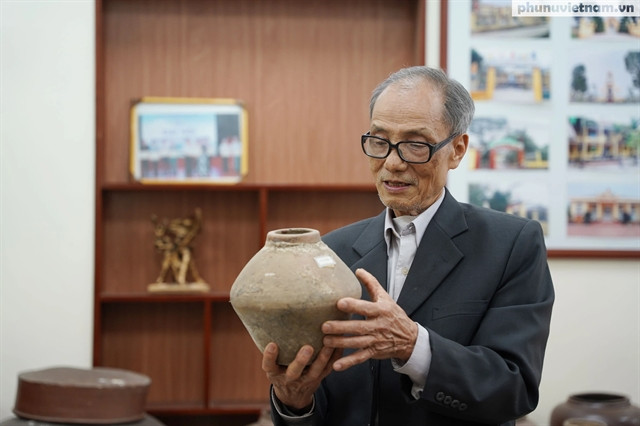
“In my opinion, educating the young generation about cultural and historical values is the responsibility of adults, and I myself need to make a small contribution to this cause," the elder said.
In addition, several items of war memorabilia can be found in the museum as many of the village’s sons fought for the nation’s independence and freedom.
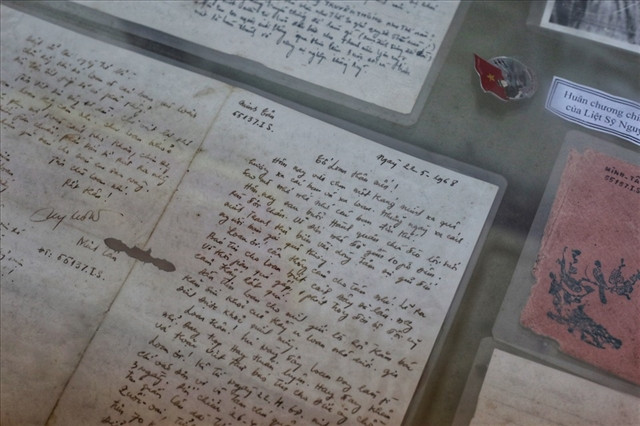
Hand-written letters soldiers sent their loved ones during the American War, a Victory Medal of martyr Nguyễn Minh Tân, or an enamel soldier’s cup, are all evidence of a heroic yet severe time for the nation.
“Through these items, we can partly learn about the hardship, loss and sacrifice of the whole nation during that time,” Chairman Khánh said.
Items used widely during the subsidiary period (1975-1986) such as kerosene stoves, black-and-white TVs, Rạng Đông-labelled thermoses and food ration tickets are also on display at the museum.
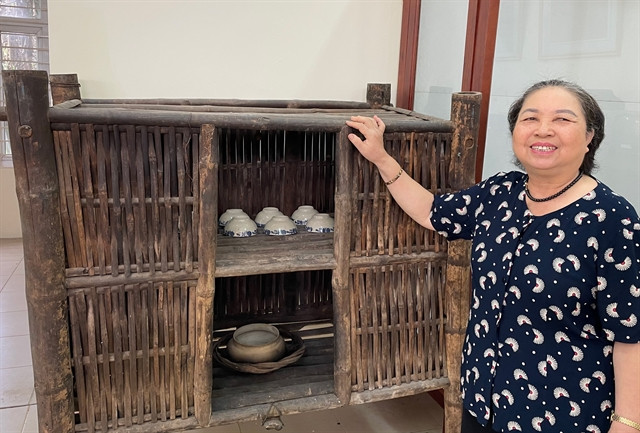
Nguyễn Thị Huệ, 68, who has volunteered to become the museum’s caretaker, has also donated a 100-year-old ceramic vase.
“I'm happy with what I'm doing for the museum. Keeping my eyes on these memorabilia every day makes me recall many memories. That’s why, no matter how hard it is, I still want to be part of the museum, devoting my own little labour to serve the community,” Huệ said.
In future, the village will continue to call on people to make donations, aiming to diversify the collection.
“Our goal is to turn this venue into a cultural spot of the area. This will also help younger generations to be proud of the historical and cultural traditions of their forefathers,” Chairman Khánh said.
“Other neighbouring communes have visited the museum to learn about the model. But so far, our museum is still the only one in the district.”


